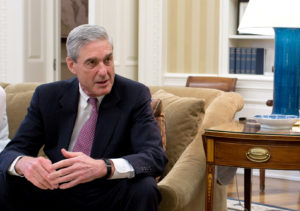Truth, Lies and Telegram
The rise and fall of Russia’s encrypted war bloggers. While at times a useful tool for Vladimir Putin, Telegram has proved difficult for the Kremlin to control. (Graphic by Truthdig. Images sourced via AP Photo and Adobe Stock)
While at times a useful tool for Vladimir Putin, Telegram has proved difficult for the Kremlin to control. (Graphic by Truthdig. Images sourced via AP Photo and Adobe Stock)
Since the start of what the Kremlin calls the Special Military Operation, known everywhere else as the invasion of Ukraine, Russian President Vladimir Putin has faced a problem: the rise of thousands of military bloggers, known as voenkory, on the encrypted Telegram app, which is outside his control.
When the Ukrainian war started three years ago, there were only a few journalists who specialized in military issues, and unlike Western war correspondents, they were not allowed to observe the conflict directly. Still, most Russians were content to get their information from State TV. Even if they didn’t necessarily believe what they were told, they accepted that pretending to believe it was their patriotic duty. But the advent of the blogging voenkory on Telegram presented them with another option. Millions of Russians preferred the new military bloggers who uploaded photos and videos in real time on Telegram channels, doing the work that, in an open society, would be done by embedded war correspondents. (But not always: One antecedent of the voenkory were American soldiers in Iraq who blogged and posted from the front lines, sometimes using military issue laptops, with the understanding that any mention of operational details would result in a court-martial.)
Telegram was created from the ground up by Pavel Durov as a counterforce to Russian control of the media and the internet, and its model of free, encrypted and anonymous communication proved to be valuable outside the Russian sphere of influence, too. Adopted worldwide as a messaging platform after its launch in 2013, it allows political dissidents, conspiracy theorists and others who feel the need of protection from state surveillance to communicate, anonymously if they prefer, without fear of having their door kicked in at 3 a.m. by U.S. Marines or Wagner mercenaries. Like many American tech moguls, Durov is a libertarian and has steadfastly refused to allow Russian or any other authorities to break Telegram’s encryption or to hand over user data.
Only when Putin’s invasion of Ukraine began to go badly did cracks begin to appear.
And yet, despite using an encrypted app free of state interference, the voenkory began the war mostly serving the purposes of the Kremlin, as the bloggers’ mood was solidly pro-war and pro-government. Only when Putin’s invasion of Ukraine began to go badly did cracks begin to appear. Photos and videos of Russian vehicles stuck in the mud as sitting targets for Ukrainian counter-attacks didn’t at all match the official line. A particular problem came up from a popular group of bloggers claiming to be from the Wagner mercenary group. As Wagner moved closer and closer to actual armed insurrection, its blog posts became correspondingly more hostile to the Kremlin. When Moscow tried to turn its propaganda machine against the firm and its leader, Yevgeny Prigozhin, it was faced with the fact that millions of pro-war Russians were now following the Wagner narrative. After the Wagner insurrection was defeated in June 2023, Putin realized that he was going to have to do something about this volatile and uncontrollable online force. Telegram seemed to be unstoppable.
He has since adopted three main strategies to attack the Telegram truth-tellers: Rewarding loyalty; demanding an end to anonymity; and flooding the blogging community with new channels controlled by the Kremlin with the directive to parrot state propaganda.
In the voenkory culture, it is accepted that criticizing commanders, even senior generals, is OK so long as the background idea is that these incompetent traitors are betraying Putin and preventing his brilliant plans from working. But there is nothing to prevent any individual from breaking this rule, and a small but steady trickle of criticisms are clearly aimed at the president.
With the growing popularity of the military bloggers, the most successful channels were not the work of individual frontline soldiers, but small, specialized news agency channels. Teams of people worked together to keep a steady stream of not only reposted material, including front-line photos and videos, but also news stories, including foreign media reports. There were several posts per hour, day after day, providing the Russian public with many alternative sources of information. The Telegram channel Operation Z, which has 1.68 million subscribers and claims to provide information directly from troops in combat, is an example. It does not identify its contributors, and also provides a stream of mainstream media stories.
There are also some channels featuring expert military analysis, such as the Military Russia portal run by Dmitry Kornev. It is authoritative enough to be quoted by mainstream Russian media outlets and concentrates on hard information about bombs and bullets rather than propaganda or opinion.
In June of 2023, Putin welcomed some of the most popular bloggers, with millions of followers, to the Kremlin for a televised round table. One ultra-nationalist blogger who never received his invitation was Vladlen Tatarsky, who was assassinated that April in St. Petersburg, possibly by Ukraine; Putin made him a Hero of Russia posthumously. The message was clear: loyal pro-war and pro-Putin bloggers are contributing to the war effort.
The second strategy, an end to anonymity, has been less successful. An order from the president’s office demanded that military bloggers register their identities with the government by the start of 2025. So far, only 10% have complied. Telegram’s encryption seems to be robust, but it is remarkable that even the overwhelmingly pro-war voenkory bloggers are not prepared to give up their names.
The message was clear: loyal pro-war and pro-Putin bloggers are contributing to the war effort.
The third strategy — adding its own paid state propagandists to the mix — has fundamentally changed the nature of the military blogosphere.
There are now thousands of channels, varying from de facto news agencies to individual anonymous Russians making a few posts and then going silent. There are no substantial differences between many of their messages and what you will find on State TV: The Ukrainians are all Nazis, the heroic Russian forces are repeating the glories of the Great Patriotic War and so on.
Andrey Kuzichkin, writing for Estonia’s oldest daily newspaper, Postimees, has pointed out that while more than half of Russians who rely on State TV for information are staunch supporters of the war, this falls to 30% for those relying on YouTube, with Telegram users in the middle at 38%. The Kremlin’s goal is to subvert Telegram’s anti-state bent and turn it into a tool to attack the silent dissenters inside Russia, while also targeting fire on incompetent generals and their betrayal of the heroic Russian frontline forces.
The effect of this is subtler than you might think. Some of the new Z-bloggers are TV personalities and other well-known figures, but most of them are hiding behind pseudonyms like everyone else, and since most of the front-line bloggers are enthusiastically pro-war and pro-Putin too, it is impossible to tell whether an opinion is a spontaneous comment from a soldier in the field or a piece of Kremlin propaganda. For instance, there are still a number of popular channels claiming to be associated with the Wagner group. Are they really active members of Wagner? Ex-members? Folks pretending to be members of Wagner? Or is it all some complicated FSB exercise in disinformation?
The effect of the tactic of flooding the market has been to throw everyone off balance while strengthening the pro-government mood. But as the war drags on, the Russian public, like the Ukrainian public and the public in the West, are keen for news, and if you want news about what is happening on the Russian side of the war, all that is available is anonymous blog accounts.
This means that the “news agency” model is steadily expanding. From reposting legacy media stories, the big Telegram channels, like Operation Z, have morphed into news-gathering operations, and are now the only game in town. During the recent operation to expel the Ukrainians from Kursk, assisted by U.S. President Donald Trump’s decision to cut off American aerial surveillance feeds to the Ukrainians, there were several days of chaos. Russian, Ukrainian and Western media all started reading Russian Telegram channels to try and work out what was going on.
So it was that Meduza, a leading independent news site operating from Latvia and founded by exiled Russian journalists, reported the Kursk events on March 10 citing “war correspondents” (voenkory), specifically the Telegram channel of Severny Veter. Photos illustrating the article came from the Russian news service, RIA Novosti, which itself recycles Telegram sources. The BBC, reporting the same events, tried to focus on official channels, but for real-time reporting turned to unnamed war correspondents.
The Institute for the Study of War (ISW) did the same thing, in this case to counter official propaganda, which included the March 14 statement by Trump on Truth Social that “thousands of Ukrainian troops are completely surrounded by the Russian military.” The ISW compiled maps and other accounts from front-line military bloggers to show that this was not true. The ISW report footnotes the Telegram channels in question, which gives them more credibility. But it has dubious political value, since the sources may or may not be Kremlin disinformation channels.
The same pattern is repeated with every fresh battle. On March 25, the Russian-language news site hibiny.ru reported on the Ukrainian counterattack in Belgorod by quoting two bloggers, Yuri Podolyaka and a channel called “Paratrooper’s diary.” No other sources are quoted, as none were available. The bloggers are always quicker to react than the TV channels, which need to wait for guidance from the Kremlin on how to spin their stories.
State TV propaganda seems restrained compared with what circulates online.
But if the Telegram channels combine reporting and propaganda, it is a different kind of propaganda, one with no limits on the hatred that can be expressed. This gives the strange result that the outrageous State TV propaganda, which regularly talks about nuclear attacks on NATO members, seems restrained compared with what circulates online.
Whereas official coverage of the Trump-Putin relationship has been deliberately neutral, Telegram bloggers can and do express open hatred of America, contempt for Trump, dismay at any prospect of a peace deal, and so on. These are popular opinions among the Russian masses after years of propaganda, but even so, it is doubtful that Moscow could put a stop to this kind of anti-American feeling even if it wanted to.
A Bulgarian publication, Fakmu, says that the idea of a deal between Putin and Trump “could turn against the Kremlin, inflaming both the general public and the increasingly powerful and hawkish contingent of ex-soldiers, former Wagner mercenaries and war veterans who are already stoking dissent in the country.”
An example of this comes from the blogger Yegor Guzenko, with over 300,000 subscribers, who went through a few days of posting harsh attacks on the government last September. “Everything that is happening now is a betrayal. The traitors are sitting in the Kremlin.”
The official strategy of subverting Telegram with loyal propagandists seem to be working, but the Kremlin has always maintained that the real enemy is not Ukraine, but America. If America suddenly becomes a friend and business partner, that enemy disappears.
It may be that Telegram is just too difficult to control, even with the flood of officially sponsored propaganda. On March 25, Cnews.ru reported that the Russian messaging and internet company VKontakte, or VK, is developing a Russian version of China’s WeChat service, which, thanks to support from the Chinese Communist Party, has defeated all competition in that country and is used by 1.2 billion people. It includes all the most popular smartphone services combined: messaging, news feeds, banking and payments, maps, and so on. VK was developed by a small group of Russian computing students as a copy of Facebook. However, the company’s press releases do not mention that the founder, Durov, resigned in 2014, claiming that the company had been taken over by Putin’s political faction. He went on to found Telegram and leave Russia. Telegram is now run from Dubai and has made Durov a billionaire.
The success of WeChat in China includes strict government control. If a story arises that the government doesn’t like, instead of trying to deal with Facebook, YouTube, Instagram and many other disparate channels, they can close it down everywhere with the convenient central facility of WeChat and it will instantly disappear from news feeds, e-mail and instant messages. Billions have been invested in the VK project, provisionally called Max, and the Kremlin’s fingerprints are all over it. It will launch soon, with beta-testing coming in the spring.
This could finally solve Putin’s problems with the anonymous critics who appear on Telegram. Telegram was blocked throughout Russia in 2018, but reinstated in 2020. It reaches 72% of the Russian population. In March 2025, Russia blocked Telegram in Chechnya and Dagestan. The minister of digital development of the Republic of Dagestan, Yuri Gamzatov, told the Russian news agency TASS that Telegram is ”often used by enemies.” He added, “Perhaps Telegram will be unblocked in the future. For now, there are good analogs, for example VK.”
If the Russian public can be persuaded to move from Telegram to VK, Durov’s libertarian and anti-government project will have been defeated, and the new firm will be more than happy to identify anyone foolish enough to lay blame for the war at Vladimir Putin’s doorstep.
WAIT BEFORE YOU GO...This year, the ground feels uncertain — facts are buried and those in power are working to keep them hidden. Now more than ever, independent journalism must go beneath the surface.
At Truthdig, we don’t just report what's happening — we investigate how and why. We follow the threads others leave behind and uncover the forces shaping our future.
Your tax-deductible donation fuels journalism that asks harder questions and digs where others won’t.
Don’t settle for surface-level coverage.
Unearth what matters. Help dig deeper.
Donate now.






You need to be a supporter to comment.
There are currently no responses to this article.
Be the first to respond.